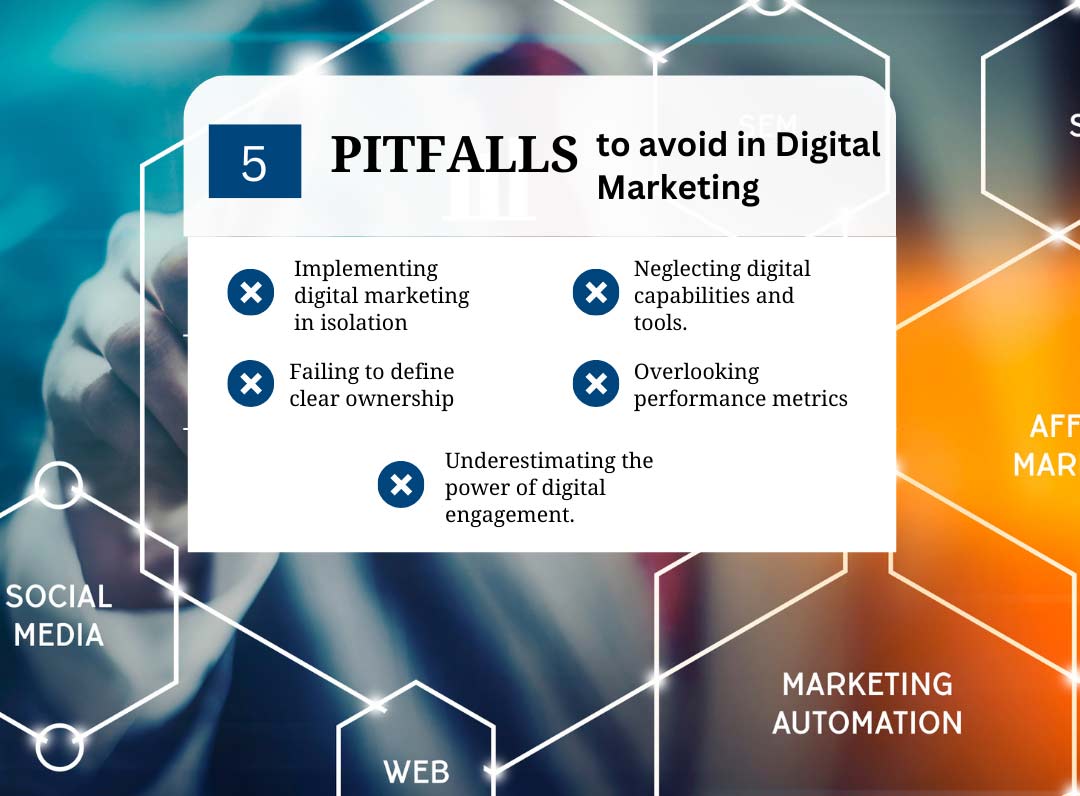It is clear, then, that digital marketing can help MedTech companies address the recent shifts in HCP engagement, whether as part of a focused marketing campaign or as an ongoing “always on” means of communication. However, we have seen a number of pitfalls that companies should take care to avoid if their efforts are to be successful in digital marketing:
Implementing digital marketing in isolation. The move to an omnichannel approach requires companies to link digital marketing to other channels, including inside sales and face-to-face sales reps. Proper change management should be implemented to ensure the onboarding of sales teams, customer service, and other commercial functions on digital-marketing tactics and agile ways of working. Effective communication with HCPs depends on a clear understanding of the purpose, timing, and method of engagement for each interaction.
Failing to define clear ownership. To present a globally unified message, digital-marketing content needs its own “home” in the organization, as well as its own budget. Best-practice companies set up a centre of excellence (CoE) or other central unit charged with driving the overall strategic vision and creating content tailored to the digital-marketing strategy and stored in a centrally available library.
Neglecting digital capabilities and tools. Building a digital-marketing channel requires the right talent. A CoE typically consists of a digital-marketing lead, product owners, user experience and user interface designers, campaign and channel experts, and data analysts. The regional teams responsible for implementation usually include campaign managers and content managers who tailor the strategies and content developed by global teams to fit local needs.
Overlooking performance metrics. Without rigorous monitoring, a company won’t be able to assess the impact of digital marketing at the regional level or manage incentives and resource allocation effectively. Having a central team define and track key performance indicators (KPIs) helps to ensure that efforts achieve their intended goals and have a positive return on investment.
Underestimating the power of digital engagement. Today’s HCPs are heavily invested in digital in general, and in particular, social-media business and networking platforms, physician-to-physician online communities, and search engines. The CoE or centralized unit overseeing digital strategy can ensure their company is benefiting from the power of digital engagement, identifying trends across channels, and designing a strategy for HCP prioritization with a message that addresses their unmet needs at the right moment via the right channel.
Developing a strong digital-marketing function takes time and effort and requires visible support from senior leaders. How effective it will be as a driver of HCP engagement depends on how well—and how quickly—MedTech companies can embed it in omnichannel customer journeys, build internal capabilities, and use data and analytics to personalize communications to meet individual healthcare professionals’ needs.
This is particularly true in the Medical Device industry where, compared to Pharma, the delay in the development and deployment of Digital Marketing campaigns is significant. In this industry, the biggest challenge is still to identify within the Marketing teams, professionals with the appropriate competencies that can be fully dedicated to the development of Digital Marketing activities. As the trend evolves and the digital marketing strategies are proving their efficacy, we expect the senior leader to focus more resources both on people and tools to deploy effective Digital Marketing Campaigns.

